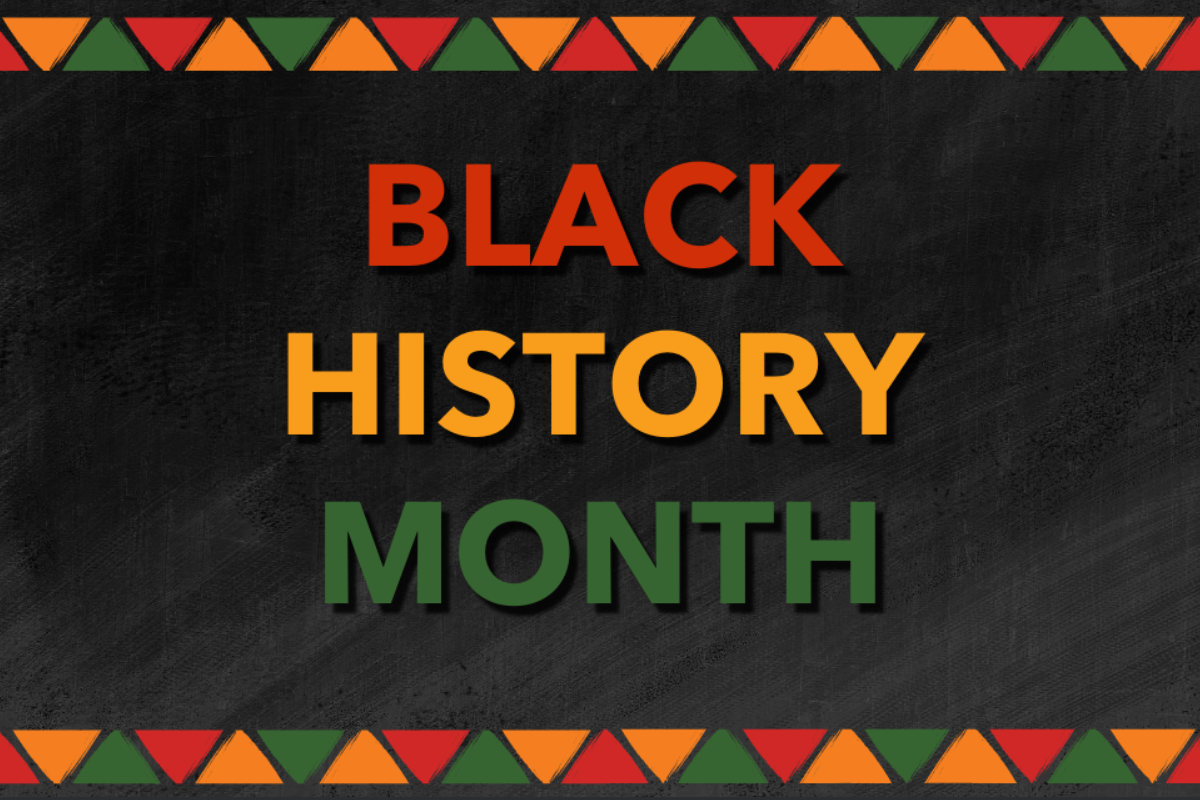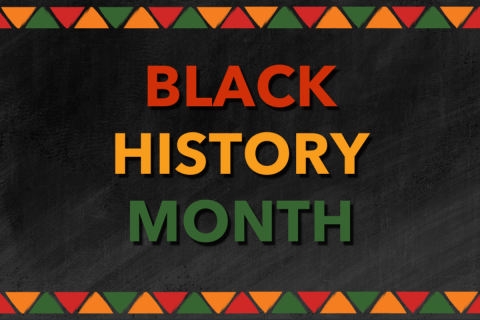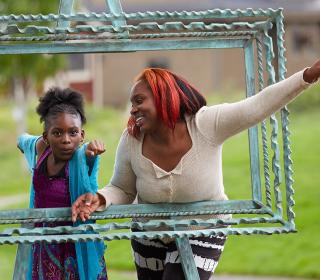The Origins of Black History Month
Nearly a century ago, and 50 years after the Thirteenth Amendment abolished slavery in the United States, efforts began to create Black History Month.
After noticing how frequently Black Americans were missing from or misrepresented in history books, Black historian Dr. Carter G. Woodson took steps to ensure that Black history would not only be remembered, but celebrated by future generations. He announced the first Negro History Week in February of 1926, and is said to have chosen February because it encompass the birthdays of two leaders who had a prominent role in shaping Black history: Abraham Lincoln (February 12) and Frederick Douglass (February 14).
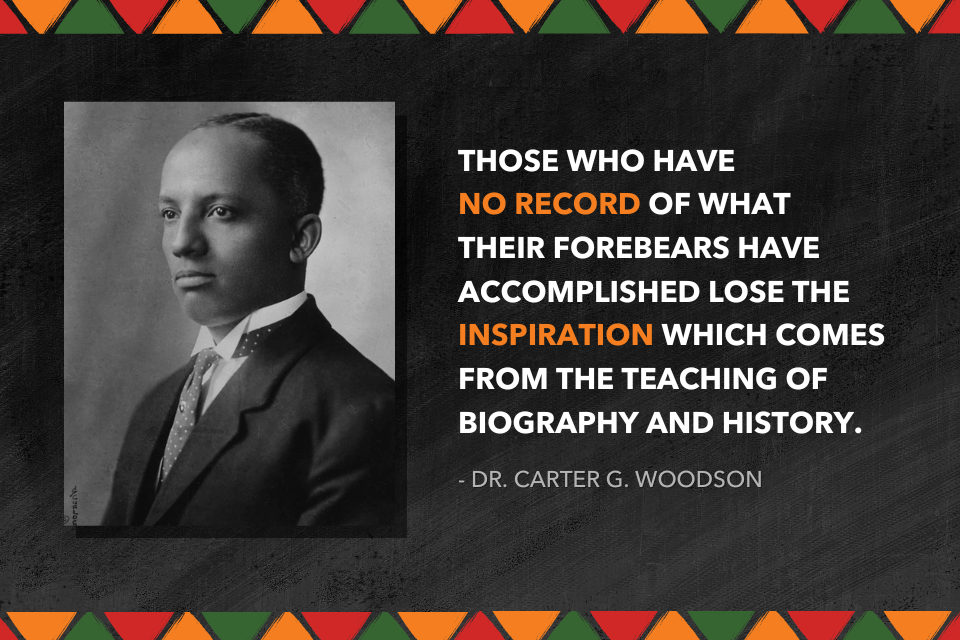
Dr. Woodson and his colleagues provided curriculum to K-12 educators and engaged the community through lectures, historical performances, parades, and more. In 1940, it was celebrated as Negro History Month throughout West Virginia, where Dr. Woodson often gave lectures. Nearly two decades after his death, students and educators at Kent State University proposed Black History Month in 1969, and it was officially celebrated in February of 1970. It gained further support in 1976 from President Gerald Ford, and since then, every US president since Ronald Reagan has officially designated February as Black History Month. Other countries around the world, including Canada and the United Kingdom, also devote a month to celebrating Black history.
Today, Black History Month is a time to celebrate the accomplishments of Black leaders and their impact on history, and engage in conversations about how to better support Black community members.
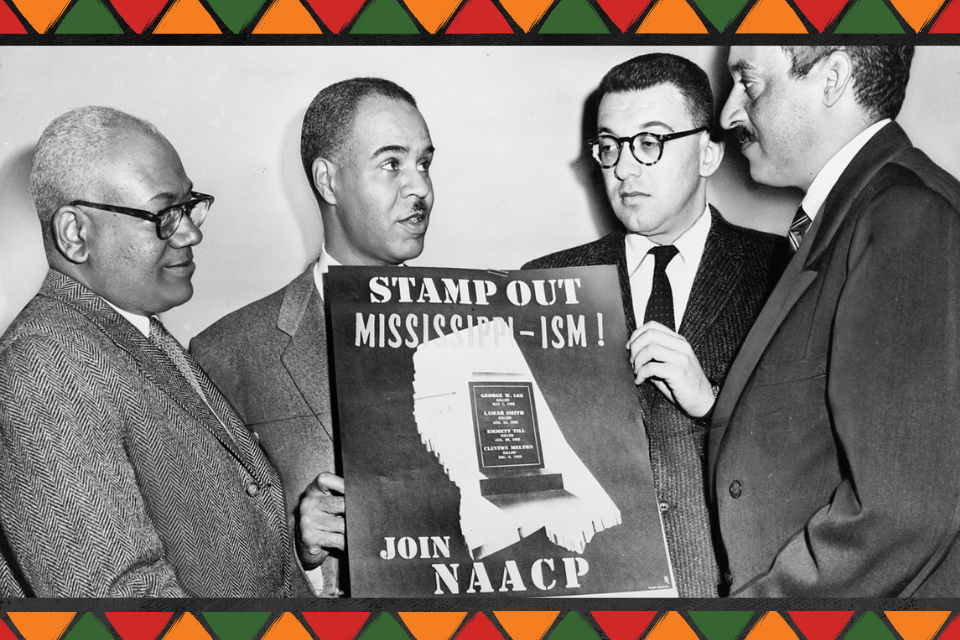
NAACP leaders Henry L. Moon, Roy Wilkins, Herbert Hill, and Thurgood Marshall in 1956
Black History Month reading list
Read some of the stories we've written about local and national Black leaders from our past and present, and how you can better support Black community members today.
Leaders from the past and present:
- Black History Month: Pioneers and change makers
Celebrate the accomplishments of Black leaders from our region and beyond, and engage in conversations about how to better support Black community members today. - Black Women Heroes from Washington State History
Highlighting trailblazing women from Washington State who strengthened our region through their economic, social, political, and civic work. - The Black Women Who Saved Seattle Jazz
Seattle’s vibrant jazz club scene of the 1940s produced famous musicians like Ray Charles and Quincy Jones. But the success of Seattle jazz bands was built on the union organizing skill of black women jazz players. - Meet The Black Lesbian who Kick-Started the Gay Liberation Movement
The history of the Stonewall Uprising, its importance to the Gay Liberation movement of today, and the black woman who's been erased from the history of this critical turning point. - Centering Black Trans Womxn
Listen to Black trans women share their stories, and learn how the intersection of their multiple marginalized identities makes them a greater target for violence and prejudice. - Anita Hill and the fight to end gender-based violence
In 1991, Anita Hill made history testifying before Congress about sexual harassment and confronting her abuser on national TV in front of millions. Since then, Anita has been at the forefront of the fight for justice for women and people of color, forging paths to equality inside and outside of the workplace. - Let's Get in Formation: 125 Years of YW Women
Paying homage to a few women who have helped shape the last 125 years of YWCA in Washington State. Because of these fearless and community-driven women, YWCA has created spaces for women and girls to network, have access to training, and find safe housing. - A Homecoming for Phillis Wheatley
YWCA marked a century of service to the women of Seattle's Central District by restoring the name of our branch there to Phillis Wheatley, the revolutionary-era Black poet and icon.
Understanding barriers and how to support:
- What’s the Difference Between an Ally and Accomplice?
To move race and social justice work from theory to action, we must recognize that "ally" and "accomplice" are not interchangeable terms. - Why We Use BIPOC
Why YWCA, and many other organizations, are moving away from the term "people of color" and replacing it with BIPOC. - Types of Racism: Internal, Interpersonal, Institutional, and Structural
By understanding the different ways racism can manifest, we can understand the best ways to combat it as individuals and as a community. - Antiracism in the Workplace: How To Move From Words to Action
Unpacking how organizations can move from theory to action in making their workplaces antiracist: an interview with Dr. Sharon Knight. - Supporting Reproductive Justice for People of Color
The ability to control your own reproductive choices and bodily autonomy massively impacts all people, but especially BIPOC women. Learn how you can help make a difference. - What are Microaggressions?
Our conscious and subconscious biases can lead to comments and actions that are inherently harmful to marginalized communities. Learn how to identify these moments and acknowledge / unlearn the biases that cause them. - What is Intersectionality, and why does it matter?
Understand how different identities intersect, overlap, and are impacted by various systems of oppression, and see how people’s identities shape their experience in life based on their relationship to power.
Learn about this year's theme: African Americans and Labor, and check out some of the upcoming community events around Seattle where you can celebrate Black History Month and learn more!
Ana Rodriguez-Knutsen is the Content Specialist for YWCA's Marketing & Editorial team. From fiction writing to advocacy, Ana works with an intersectional mindset to uplift and amplify the voices of underrepresented communities.
We share the stories of our program participants, programs, and staff, as well as news about the agency and what’s happening in our King and Snohomish community.
